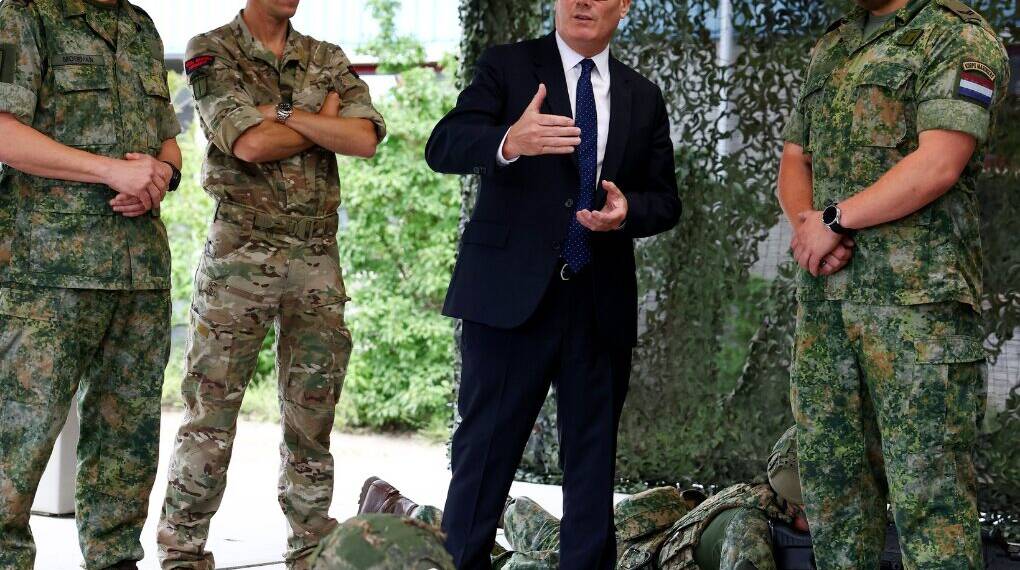The newly unveiled UK National Security Strategy signals a stark transformation in how Britain views its position on the global stage. For the first time in decades, the government has formally acknowledged the realistic possibility of a direct attack on British soil, initiating what it calls an “era of radical uncertainty.” In other words, the post-Cold War illusion of invulnerability has finally shattered.
This isn’t just rhetoric. The strategy lays out a serious recalibration of priorities: cyber resilience, energy independence, defense industrial revival, and societal mobilisation. The threats are not abstract either—Russia, Iran, North Korea, and China are all named directly. In tone and substance, this marks a clear departure from the reactive and often fragmented post-9/11 security posture. This is a blueprint for whole-of-nation defence.
Why Now? The Threats Are Not Hypothetical
The backdrop for this dramatic shift is stark:
Russia’s escalating cyberattacks and geopolitical adventurism.
Iran’s alleged assassination plots and repression of critics on UK soil.
Chinese state interference, espionage, and control over key technology sectors.
A resurgent North Korea deepening ties with authoritarian regimes.
Each of these actors represents a unique threat vector—some conventional, others asymmetric, such as energy sabotage, disinformation, or cyberwarfare. The UK is now explicitly acknowledging that warfare may not start with bombs—it might begin with malware, misinformation, or attacks on undersea data cables.
A Homefront Ready for War?
The most jarring line in the strategy is that the UK must “actively prepare” for a wartime scenario at home. This isn’t just about shoring up defences. It’s about hardening society itself—communications, supply chains, emergency responses, and citizen awareness.
Plans to roll out smartphone emergency sirens, conduct annual resilience exercises, and invest in biosecurity centres reflect the gravity of this recalibration. These are not the actions of a nation confident in the status quo.
But they also raise questions. How prepared is the British public for this cultural shift? The COVID-19 pandemic revealed gaps in coordination, logistics, and public trust. Can those lessons now inform war-preparedness? Will annual drills and text alerts suffice without a deeper cultural understanding of the threats?
The Return of Nuclear Air Power
Perhaps the most symbolic move is the reintroduction of air-based nuclear capability with the purchase of 12 U.S.-made F-35A jets. Since the late 1990s, Britain’s nuclear deterrent has been solely submarine-based. This shift signals a new strategic posture of flexibility and rapid response.
Critics may argue this re-nuclearisation of air power increases the risk of escalation. But proponents see it as a necessary adjustment in an era where deterrence must be multidimensional.
Realpolitik vs. Economic Dependency: The China Dilemma
One of the most telling sections of the strategy—and a reflection of the UK’s broader geopolitical tension—is the approach to China. The audit recognises China as a “sophisticated and persistent threat,” while simultaneously acknowledging that “not engaging with China is no choice at all.”
This progressive realism, as Foreign Secretary David Lammy calls it, walks a tightrope between national security and economic pragmatism. But it also leaves the UK exposed. Critics like Priti Patel are not wrong in saying the strategy lacks a “serious strategic framework” for managing this double-edged relationship.
Engagement with China for trade, while also guarding against its influence operations and technological incursions, demands a level of coherence and statecraft that successive UK governments have struggled to deliver.
Mobilising Society: An All-Hands Approach
What is perhaps most notable is the language of “societal mobilisation.” Sir Keir Starmer emphasizes that “every element of society” must be mobilised to confront these challenges. This is both a call to patriotism and a subtle hint at possible civil defence revival.
The question is: Can a modern liberal democracy with deep political divisions, economic challenges, and institutional fatigue truly mobilise itself as a unit? What mechanisms will the government use to educate, unify, and prepare the public—without inducing fear or fatigue?
Wake-Up Call or Window Dressing?
This strategy is undeniably the most assertive and comprehensive British national security blueprint since the Cold War. It recognises the multidimensional threats of the 21st century, invests in frontier technologies, and calls for a total national effort.
Yet the devil will be in the implementation. Without serious investment, political unity, and public engagement, these bold words risk becoming yet another set of Whitehall platitudes.
Britain’s enemies—both foreign and digital—are already laying groundwork. The question is whether the UK can not only respond but lead in a world where peace is no longer a given.








